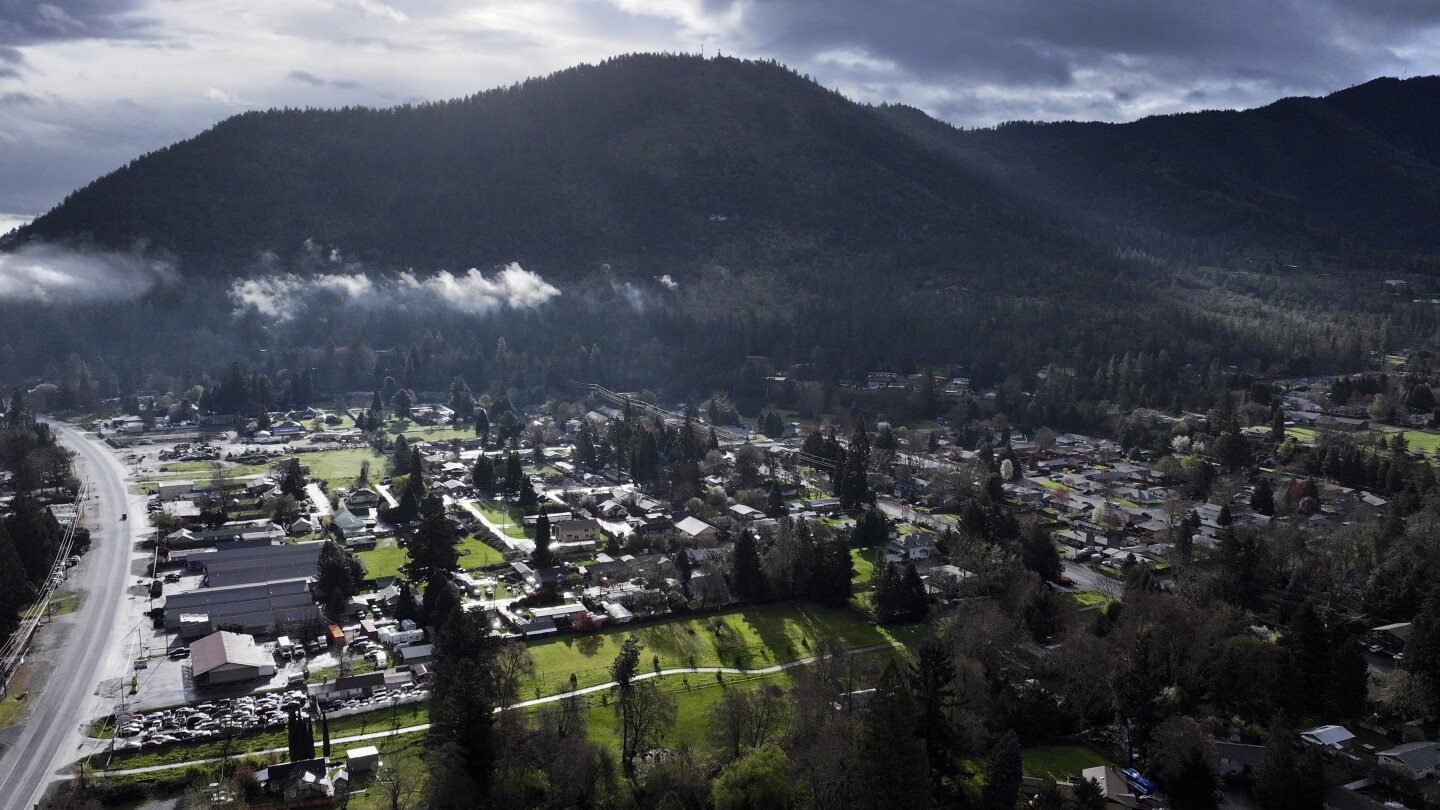The scenes were emblematic of the crisis gripping the small, Oregon mountain town of Grants Pass, where a fierce fight over park space has become a battleground for a much larger, national debate on homelessness that has reached the U.S. Supreme Court.
The town’s case, set to be heard April 22, has broad implications for how not only Grants Pass, but communities nationwide address homelessness, including whether they can fine or jail people for camping in public. It has made the town of 40,000 the unlikely face of the nation’s homelessness crisis, and further fueled the debate over how to deal with it.
“I certainly wish this wasn’t what my town was known for,” Mayor Sara Bristol told The Associated Press last month. “It’s not the reason why I became mayor. And yet it has dominated every single thing that I’ve done for the last 3 1/2 years.”
Officials across the political spectrum — from Democratic Gov. Gavin Newsom in California, which has nearly 30% of the nation’s homeless population, to a group of 22 conservative-led states — have filed briefs in the case, saying lower court rulings have hamstrung their ability to deal with encampments.



Some, you assume, must be good people though, right?
You should build a wall.
Ideally, what I’d like to see is this… It would probably take 1.5 to 2 billion to pull off:
You build and staff a state of the art medical facility for mental health and addiction treatment, including the ability to hold people long term if necessary.
You build and staff a facility for job training and placement, including specialized support for people with criminal records. This would also need to include interview and resume skills. Assistance for email, phone, and Internet, but also clothing assistance, laundry assistance, and the like for interviews.
You build and staff a facility for housing support. Like work assistance, there needs to be specialized support for people with criminal records. But also a permanent address for mail.
Once all that infrastructure is in place, you sweep the streets.
People who need mental health and addiction treatment get institutionalized and treated until they are healthy, then they get released to the job and housing programs.
People who have no job get the job assistance program.
People who have a job get the housing assistance program.
People with warrants or otherwise engaging in crimimal behavior (stolen cars, stolen bikes, other material) get arrested.
People who are otherwise able bodied, but who are homeless by choice because “I ain’t part of your system, maaaan!” get their asses kicked and pressed into service cleaning up homeless camps.
You started off this post so reasonably…
It is reasonable if you want a permanent solution.
Some might say making forced camps for a subset of people might be considered a final solution. But maybe I am just concentrating on the whole sweep the streets of undisrables part.
Camps that help people vs. camps that hurt people is a pretty significant difference. It’s clear they can’t or won’t help themselves.
But I’m open, you have a better solution than letting them live in squalor?
Ah yes, they can put a uplifting phrase on all the entrances as well. Something like work will set you free maybe. That way you know the camp was built to help people and would be way better then just leaving them alone.
There are some other things that would need to be done as well though. How would the authorities know if someone was both working and had a place? Oh I know we can issue papers to each person that have their job and residence listed, that way all it would take is the local authorities asking everyone out “Papers, please”.
On what is a seemingly unrelated note, how much of a history buff are you?
Your last sentence is what is so unreasonable. You are criminalizing being alive without a job, which means humans have no right to live without being in your system.
Pretty much, yeah, you don’t have the right to leech off everyone else. Contribute or GTFO.
Since one day you will go bankrupt, or your children will be destitute, and we can throw you all in a cell and laugh at you, I think your lack of empathy has the perfect end game.
Careful about them medical bills when you have a heart attack, tough guy. We don’t like poor people around here.
Been bankrupt, addicted to vicodin, and had 2 heart attacks with a bonus of open heart surgery. Never homeless. Never had to steal from others to get by.
You paid for all those procedures or you got it from the government?
How is sleeping outside and not taking anything leeching off everyone else?
Super simple, we all pay to clean up their shit:
https://www.oregonlive.com/news/2023/07/hidden-toll-of-homeless-crisis-portlands-prized-natural-areas.html?outputType=amp
And they are blocking other people from using public resources:
https://www.kgw.com/article/news/local/homeless/tents-garbage-block-ada-access-portland/283-a31c4f8c-8fb4-449d-ba1f-651e0726dc09
So, no, fuck those guys.